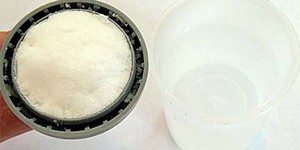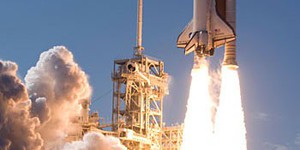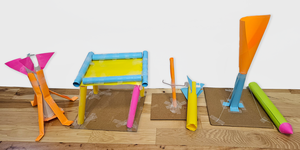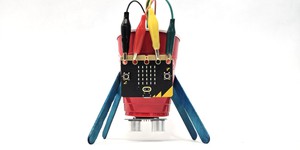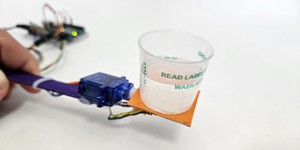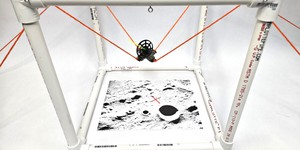Fourth Grade, Space Exploration Science Projects (11 results)
Space exploration is an exciting and wide-ranging area. Getting into space (and back down) is hard, involving rockets and launch vehicles, satellites, spacecraft, re-entry systems, landers and rovers, robots, and orbital mechanics, not to mention hypothetical technologies like space elevators and artificial gravity. To survive and thrive in space, we must understand many additional issues such as human performance in space, the space economy, and the science of astronomical bodies.
|
Select a resource
Coding Projects
Sort by
|
Watching a spacecraft launch is an amazing experience. It is thrilling to see it lift off and escape Earth's gravity. Did you know that it takes a chemical reaction to get a spacecraft into space? Every time you see a one blast off, you are watching chemistry at work. In this chemistry science fair project, you will also get to blast an object into the air. You will not be using the same fuel that NASA uses for the rockets that launch their spacecrafts; instead, you will use two simple…
Read more
3... 2... 1... 0— blastoff! In this science project, you will use a bottle rocket launcher to launch your own bottle rocket. You will load it with water and pressurized air, make several launches, and find out what makes your rocket soar the highest.
Read more
New
Can AI understand human language? In the future, AI could aid in emergency interpretive service in the hospital when translators aren't available. But can current AI algorithms understand non-verbal languages like sign language? In this science project, you will test whether AI can learn sign language gestures or phrases to see if it can be used for interpretation.
Read more
How does a parachute work? Do bigger parachutes work better than smaller parachutes? Find out in this science project if the size of the parachute matters.
Read more
Inspired by real-world reusable rockets, in this engineering challenge, you will design and build a device to catch a falling rocket so it lands vertically. Drop the rocket from higher and higher heights to get a better score! The 2025 Science Buddies Engineering Challenge is over, but you can check out this page to see our other past engineering challenges and what this year's challenge will be! Teachers, lesson plan versions of this challenge are also available.
Read more
How do you make a spacecraft land safely on the Moon or another planet like Mars? It probably helps to know how far away the ground is so you can deploy landing gear, activate a parachute, or fire thrusters to help slow down. In this project you will build your own "lander" vehicle with a sensor that can measure distance to the ground, allowing you to program outputs like blinking lights or an audible alarm.
Read more
New
Have you ever seen a waiter balance an entire tray of drinks without spilling any? How do they do it? Do you think you could build a robot waiter that can do the same thing? In this project, you will learn how to build a self-balancing robotic tray. You can incorporate the auto-leveling tray into one of our many other robotics projects, like the Bluebot or robotic arm.
Read more
How do you practice landing a spacecraft on another planet or docking it with a space station? With a spacecraft motion simulator here on Earth! In this engineering project, you will design and build your own cable-driven spacecraft motion simulator that lets you move a model spacecraft around in three-dimensional space.
Read more
To be able to live on Mars, humans need breathable air, clean water, and nutritious food. Spacesuits can provide oxygen to breathe, ice on Mars can be a source of water, but how could we get nutritious food? Today's astronauts bring food with them. But a manned trip to Mars would require food that was either successfully grown in space or on Mars, as taking the extra weight of food for such a long time—it takes 6–9 months one way—is just too costly. In this project, you will…
Read more
The idea of a colony on Mars is exciting! In this science project, you will tackle one of the challenges a Martian colony will face: what will buildings on Mars be made of? In this project, you will make bricks from Martian-like ground cover and measure how strong these bricks are.
Read more
Space is a dangerous place for astronauts and spacecraft. Earth's orbit is full of potential hazards like meteoroids, space debris, and other satellites that you do not want to crash into! How do scientists detect these objects in space? If you do detect an object, how can you tell what it is? In this project you will make your own computer program that can recognize and react to three different models of objects that can be found in space. No previous programming experience is required!
Read more
Training for space flight isn't just a physically demanding job. You need to be prepared mentally and emotionally, too! In this science project, you will test how a breathing technique can improve your fight-or-flight response induced by the stressors of space flight.
Read more
|


